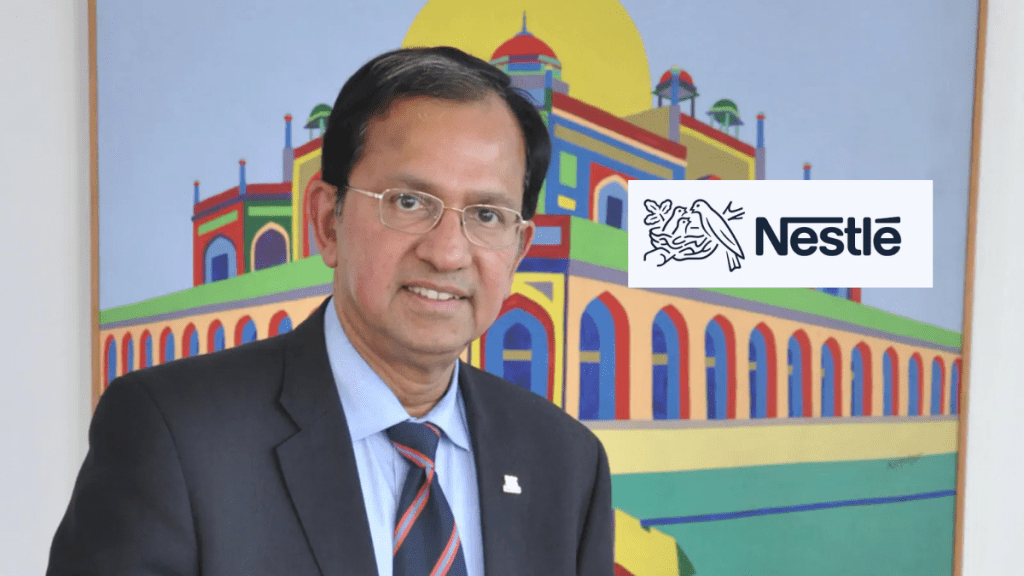Nestlé India’s outgoing Chairman and Managing Director, Suresh Narayanan, believes that moments of crisis offer companies the best opportunity to introspect, discard inefficiencies, and refocus on value.
Speaking to PTI ahead of his retirement later this month, Narayanan reflected on the 2015 Maggi crisis that forced the company to recall its flagship instant noodles after the food regulator FSSAI alleged excessive lead content. The crisis, which briefly pushed Nestlé India into an existential spiral, turned into a transformative moment under Narayanan’s leadership.
“Crisis is a very good time to make change,” Narayanan said, adding, “You can jettison all the things that are not serving the purpose of adding value to the consumer and put in things that add value.”
Narayanan was leading Nestlé’s operations in the Philippines when he was swiftly brought in to manage the fallout in India. He took charge as MD on 1 August 2015, and within five months, by November, the Maggi brand was relaunched.
From brand breakdown to rebuilding trust
Looking back at the tumultuous period, he noted, “I came into Nestlé at a very troubled time. It was probably the existential crisis that was happening… Maggi was at the centre of all the news in the business world of India.”
He admitted that the company initially responded to the crisis with facts and technical details but failed to account for how deeply the brand resonated with Indian consumers. “A crisis of this kind is more than technical facts. It is perspectives and perceptions that matter,” he said. The turning point, he recalled, was when Nestlé began to focus on the emotional equity of the Maggi brand, and the trust it had built over decades.
Narayanan credited Maggi’s comeback to the collective strength of the brand’s ecosystem, employees, suppliers, partners, and consumers. “We accepted the dictum that failing to succeed will help us to succeed,” he said. Often called Nestlé’s “crisis manager”, Narayanan has led the company through difficult markets globally, including Egypt and Singapore.
Post-crisis phase
In India, the post-crisis phase saw Nestlé accelerate its pace of innovation. “We were an innovative company, but rather slow in innovation. Today, we innovate at about four times the rate of what we were doing pre-crisis,” he said, pointing out that the company has launched around 150–160 new products since.
Under Narayanan’s decade-long stewardship, Nestlé India grew from a shaken Rs 8,000 crore company in 2015 to a robust Rs 20,000 crore FMCG giant today. Maggi, which once teetered on the brink of collapse, reclaimed its leadership in the instant noodles category and continues to command over 60% of the market.
“It’s the only example of a brand that went from market leadership to death and back to leadership in three months,” Narayanan noted. Nestlé India’s performance metrics underline that turnaround. The company’s profits are now five times what they were in 2015, while market capitalisation has quadrupled. The number of shareholders has grown sevenfold, and return on equity surged from 19% to nearly 90%.
“Any movement in the environment, a company should be on top of it in terms of gauging how impactful it is going to be,” Narayanan said, summing up the key lesson from one of India’s most talked-about corporate crises.
